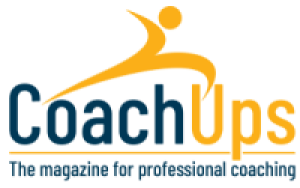3 ways to measure the ROI of Coaching
I was initially skeptical about the benefits of coaching. It sounded nice theoretically but in the practical world, a hands-on manager TELLS the team what to do and not to do.
It had ensured performance and I have been doing it for years!
A few days later I found myself cribbing to my peers on the controlling nature of my own boss and how he doesn't allow me to give my best.

That’s when it hit me and I found merit in trying to adopt a coach’s mindset for my own subordinates.
The results were incredible. Not only did we achieve the results, I found hidden talents in my team. Better approaches came to light to do the work at hand and it fostered a culture of inclusiveness.
Adopting a coaching mindset is an investment worth your money. If you persistently apply it in your organization, you will find that it gives results across various parameters.
Investments are weighted, judged and compared with others in order to derive the maximum return out of them.
Here are few results by which one can measure the benefits out of the professional coaching investment:
Tangible numerical target – Coaches are bound by a predetermined contract and scope. At the onset of the coaching journey, establishing a numerical target, for example, proposed sale or profitability in terms of amount or percentage growth.
Achievement of goals by the individual or team can then be measured at periodic intervals to gauge the ROI of coaching.
Individual self-assessment – Coaching brings about shifts in the behavior and belief systems of clients. Identifying and documenting the need for the same upfront by the executive and coach helps them to measure the progress over the whole journey.
To measure the improvement on intangibles, e.g. improvement in influencing or collaboration as a skill, the client may self assess themselves on a scale through psychometric tools or a simple questionnaire and document the authenticity for the results of the coaching exercise.
Group feedback – Many companies organize feedback for the development of an individual from various stakeholders. As an example, a 360-degree feedback interviews the individual, the line manager, peers and subordinates on various competencies and tries to provide an organization wide way to comparatively provide developmental needs to employees.
A before and after on such a report is an effective tool to measure the ROI of coaching.
The best way to isolate the impact of coaching on any of the metrics above is similar to getting the impact of any other cost item on business sales. It has to be experienced, continuously measured and then tailored to customize the need of both the individual and the organization.
Professional coaching results in delivery of objectives, development of the executive and improving their wellness which is non-negotiable.
Sunny is founder at Sunny Connect, a firm specializing in curating programs for Conscious Leadership Development and can be reached at coach@sunnyconnect.in












.png)
.png)
Comments List